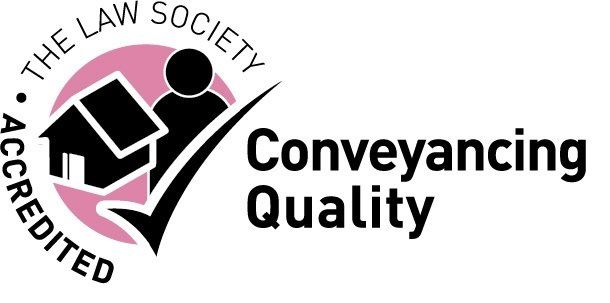Since 1879 we’ve been serving the local communities of the North East of England, for some, that means we’ve been part of their family for generations.
Andrea Cellini is a solicitor in the Litigation Department. She joined PGS Law in February 2023 after spending nearly 15 years as a solicitor at a large specialist Newcastle based firm, where she acted for clients all over England and Wales who had suffered injuries in accidents at work and elsewhere.
Andrea has obtained compensation for thousands of clients who have suffered accidents both in this country and abroad, sustaining injuries ranging from minor soft tissue to life-changing amputations, spinal and brain injuries.
Injuries at work FAQ
-
Can I make a personal injury claim for an accident at work?
Yes, it is possible to claim for an accident at work provided you can prove three things:
- That your employer owed you a duty of care to keep you safe at work, so far as reasonably possible.
- That your employer breached that duty of care
- And that breach led to you suffering an injury.
If you can demonstrate these three things there is a good chance that we can establish that your employer was negligent.
-
Can I claim compensation for an accident at work?
Legislation dictates that employers must try to keep you as safe as possible in your place of work by training you properly, conducting risk assessments and removing any dangers, supplying adequate Personal Protective Equipment (PPE) where required and repairing damaged equipment in a timely manner. If they fail to do so, you could claim compensation if you hurt yourself at work as a result.
-
Do I have to be a full-time employee to claim for an accident at work?
In addition to full-time employees, part-time workers, agency staff, temporary workers and self-employed workers can claim for workplace injuries. Under the Health and Safety at Work etc. Act 1974, employers have a duty of care towards their workers, whether permanent employees or temporary staff members.
-
Can I make a claim whilst still employed?
Yes, by law, you should not be treated any differently for claiming compensation from your employers and you should not be sacked or suffer detrimental treatment or be disciplined for starting a claim. If you are, you may have an employment law claim.
-
What types of compensation can I claim for?
There are guidelines for compensation for injuries such as the Judicial College Guidelines (JCG) which is a reference book used by judges to determine brackets for certain compensation types. For example, £12,770-£19,200 for a serious shoulder injury.
We also look at cases which have been to Court and have been reported upon, as to what would be a suitable level of compensation for your specific injuries. Our team could give you a more personalised estimate once we have all the details of your case.
In addition, you could receive payment for any costs you have incurred because of your injuries, for example, travel costs linked to medical appointments, medical expenses, lost income and future income, care costs and adaptations to your home.
-
How long do I have to make an accident at work claim?
You have 3 years from the date of the accident to make a claim for compensation. If you lose mental capacity because of the accident, the time limit will be frozen until you regain it. If you are under 18 years old when you have an accident, you have until your 21st birthday to either settle your claim or commence Court proceedings.
-
How do I pay for a personal injury claim for an accident at work?
We work on a no win/no fee basis (also called a Conditional Fee Agreement). This means that if your case has good prospects of success, we will not ask you for any payment in advance and we will take your case on a no win/no fee basis. If we are unable to pursue your claim due to a reduction in prospects, or you were unsuccessful at trial, then there is no charge to you.
Road Traffic Accident (RTA)
-
How long do I have to make a claim for a road traffic accident?
In most cases, you will have a three-year time limit to start Court proceedings to make a personal injury claim and you should keep the time limit in mind to ensure your claim can be dealt within the time allowed by law. Often it is best to start the process of making a claim as soon as possible whilst the circumstances of the accident and its impact on you are fresh in your mind.
If you or one of the occupants injured were under 18 at the time of the accident, they have until their 21st birthday to pursue the matter. But it is often best to start the process sooner rather than later.
-
What damages can I claim for?
There are two types of damages:
General Damages relate to the pain, suffering and loss of amenity that you experienced following your road traffic accident.
Special Damages that relate to any expenses or financial losses that you have incurred as a result of your accident for example, travel costs linked to medical appointments, medical expenses, lost income and future income, care costs and adaptations to your home.
-
What evidence will I need for my road traffic accident claim?
The more evidence you can provide us with, the easier it will be for us to process your claim, such as photos of the accident scene, a sketch showing the accident location and position of the vehicles, details of the vehicles involved, names and contact details of any witnesses and receipts of any costs incurred following the accident.
-
Can I claim if a road traffic accident was partly my fault?
You may still be entitled to make a claim if you are found to be partly to blame or your actions have contributed to the accident, but your final award of compensation will be reduced to reflect the fact that you contributed to the accident.
-
What if the driver didn’t stop or was uninsured?
In cases where a driver is not insured or did not stop you should notify the police of the accident and inform your insurance company of this. This way, efforts can be made to trace the identity of the driver. In cases where a driver did not stop or was uninsured, you will likely have to pursue a claim through the Motor Insurers’ Bureau, a body into which all motor insurers pay, to compensate the victims of uninsured/untraced drivers.
-
Has the law changed in relation to law value road traffic claims?
In 2021 the government made changes to the claims process for low-value road traffic accident personal injury claims, the majority of which are whiplash claims or claims valued at less than £5,000. For these claims, you have the opportunity to settle them online without the need to go to court or for legal representation.
-
How do I pay for an injury claim resulting from a road traffic accident?
We work on a no win/no fee basis (also called a Conditional Fee Agreement). This means that if your case has good prospects of success, we will not ask you for any payment in advance and we will take your case on a no win/no fee basis. If we discontinue your claim, or it unsuccessful at trial there is no charge to you.
-
I was a passenger in a vehicle, can I claim?
If you were a passenger and you were injured, then you can claim against the party at fault. Even if there are passengers in your vehicle under the age of 18, they too can claim if they were injured.
Catastrophic injuries
-
What is a catastrophic injury?
Catastrophic injuries are the most serious personal injury claims other than fatal injuries. They usually mean that the injured person has suffered life-changing injuries that are permanent and irreversible. Examples are severe burns, spinal injuries, paralysis or the permanent loss of mobility, loss of bladder or bowel control, amputations, chronic pain, injuries that affect circulation and respiratory issues, or a brain injury. Essentially any injury that means the person will not be able to recover enough to return to a ‘normal life’.
-
What are the common causes of catastrophic injuries?
The causes can be far ranging but the most common are road traffic accidents, medical negligence, falls from a significant height, violent attacks, sporting accidents, near drowning or poisoning.
-
How long do I have to make a claim for a catastrophic injury?
 Button
ButtonIn most cases, you will have a three-year time limit to start Court proceedings to make a catastrophic injury claim. However, if a person is mentally or physically incapacitated due to their injury, or they are under 18, a representative can make a claim on their behalf.
-
What damages can I claim for?
There are two types of damages:
General Damages relate to the pain, suffering and loss of amenity that you experienced.
Special Damages that relate to any expenses or financial losses that you have incurred as a result of your accident, for example, travel costs linked to medical appointments, medical expenses, lost income and future income, care costs and adaptations to your home.
-
How long do catastrophic injury claims take?
There is no set length of time for a catastrophic injury claim as it depends on the factors of the case, however, catastrophic injury claims do tend to take longer than other personal injury claims as they involve more significant damages and relate to longer-term medical needs which may need to be assessed over time. Once we have the details of your claim, we will be able to provide you with an estimate as to how long your claim is likely to take and will keep you fully informed as your case progresses.
-
How do I pay for a catastrophic injury claim?
We work on a no win/no fee basis (also called a Conditional Fee Agreement). This means that if your case has good prospects of success, we will not ask you for any payment in advance and we will take your case on a no win/no fee basis. If we are unable to pursue your claim due to a reduction in prospects or you are unsuccessful at trial, then there is no charge to you.
Want more information?
PGS Law is the trading name of PGS Law LLP a limited partnership registered in England & Wales under no OC372923. Authorised and regulated by the Solicitors Regulation Authority.
The notarial practice of William Joseph Dryden is regulated through the Faculty Office of the Archbishop of Canterbury.
For the purpose of notarial services, the standard Terms and Conditions and Privacy Notice of PGS Law LLP do not apply, instead they are replaced by the following Notary Public Terms and Conditions and Notary Public Data Protection and Privacy Notice.
PGS Law










